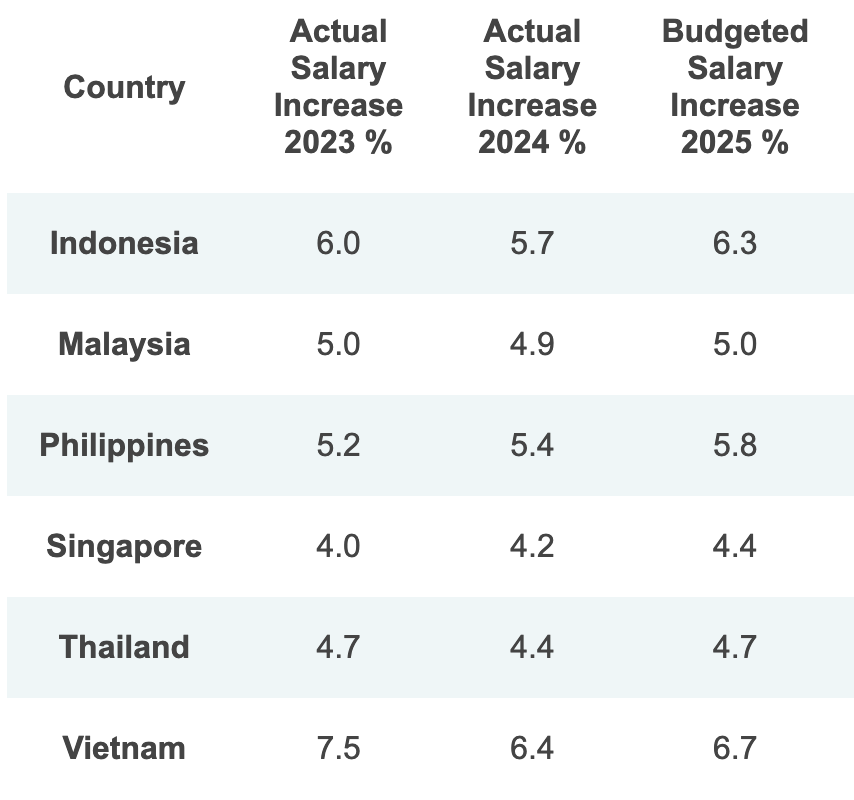
Attrition rates also rise across region: report

Salaries across Southeast Asia are expected to go up next year as organisations in the region struggle to recruit and retain talent, according to the latest survey from Aon.
The survey, which looked into more than 950 companies in six Southeast Asian countries, found that budgeted salary increases are increasing across the board.
Vietnam registered the highest budgeted salary increase for 2025 with 6.7%, according to the report.
This is followed by Indonesia with 6.3%.

Source: Aon
By industry, the budgeting for salary increases in technology and manufacturing is at 5.8%, the highest among other industries. Other industries recorded:
The findings come as the attrition rate also went up across the entire region, except Malaysia, in 2024.
Indonesia logged the highest attrition rate with 20.8%, followed by the Philippines with 19.1%, the report found. Attrition rates in other countries are:
The report also found that 64% of companies are having challenges in hiring or retaining employees, with one in three firms looking to increase headcount between five and 20%.
Rahul Chawla, partner and head of Talent Solutions for Southeast Asia at Aon, emphasised the challenge faced by organisations today in recruitment and compensation.
"According to Aon's Global Risk Management Survey, failure to attract and retain talent now ranks as the fourth highest risk on the minds of organisations – two years ago this was not even among the top ten risks," Chawla said in a statement.
"Employers today are in an unenviable situation of balancing the rising cost of compensation with the distinct challenge of attracting and retaining top talent."
Chawla described the current talent market as "dynamic," which provides agile firms the opportunity to be proactive in their talent strategies using total reward levers.
"To be a first mover in this environment, firms need to use real-time data and predictive analytics to understand broader market trends including what roles are in demand, what skills are fetching premiums and where cost-saving opportunities exist," Chawla said.